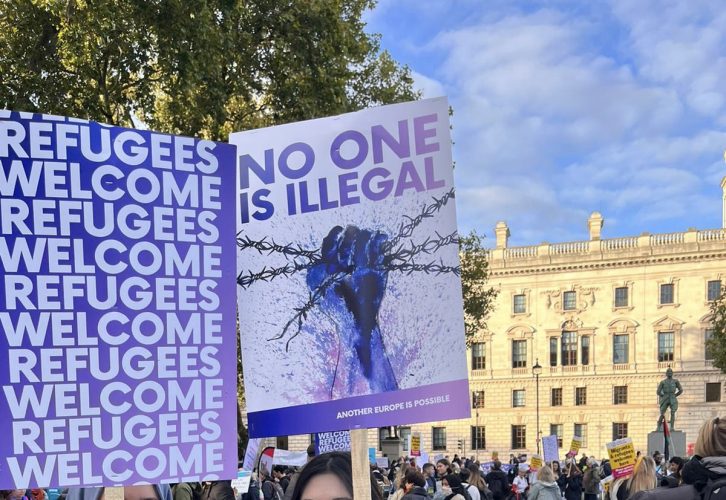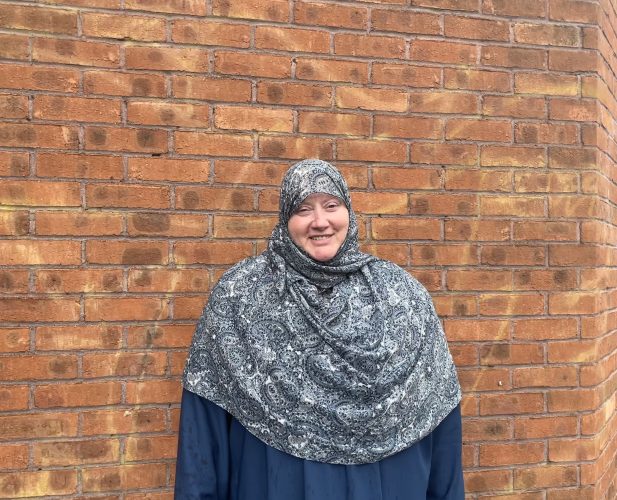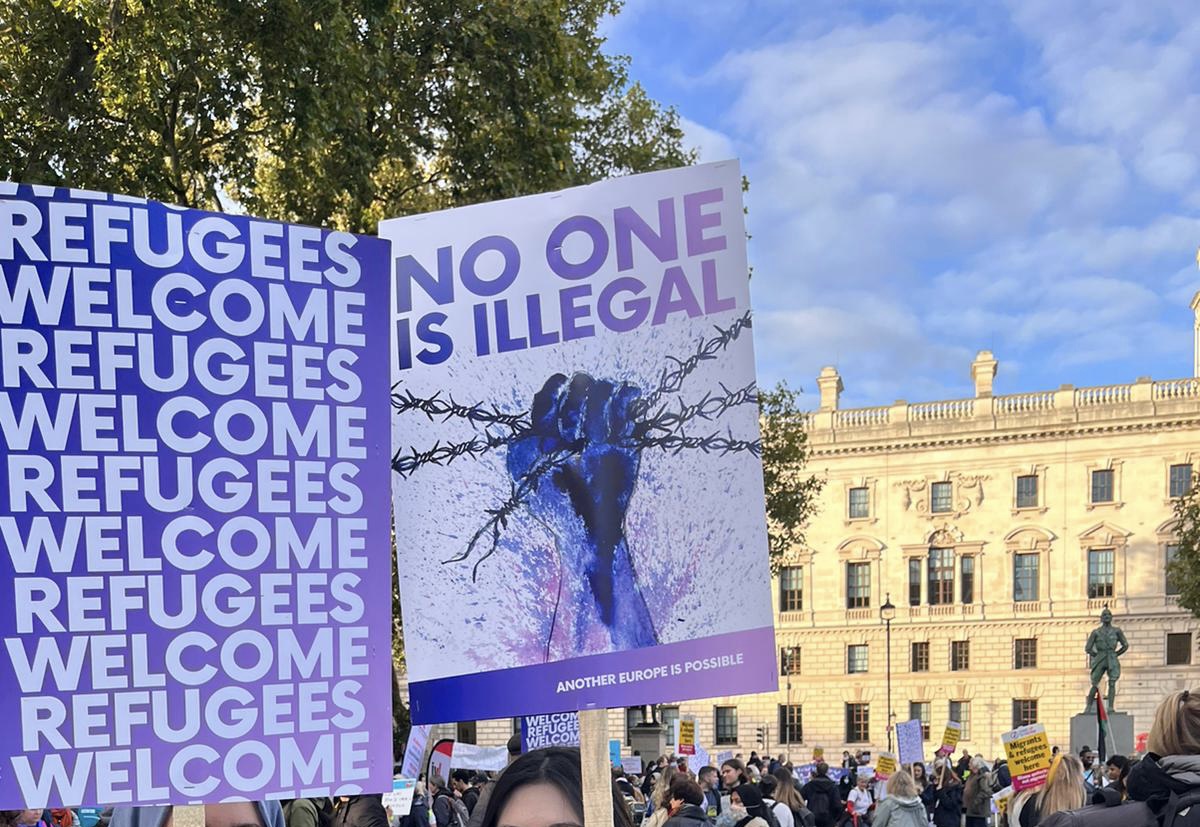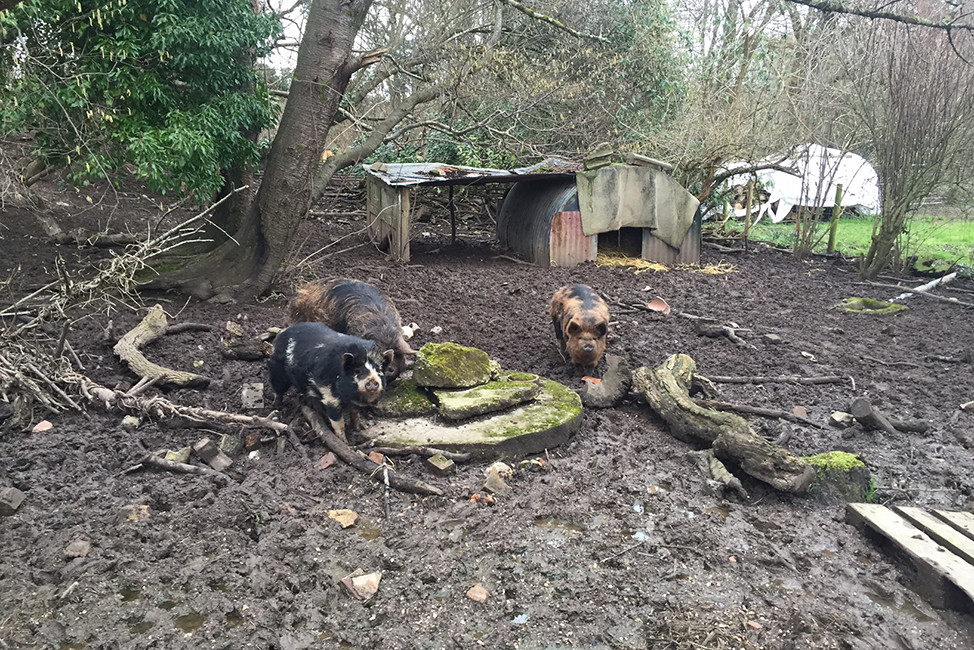
Rehana was on one of the last flights leaving Kabul. As the flight was just taking off, the 28-year-old witnessed the bombing of the airport behind her. Heavily pregnant with her first child, the trauma she had just undergone, led to a miscarriage on the plane. She was too afraid to inform her husband or the doctor until three days later.
The anxiety from her memories still haunts Rehana and her husband says she screams and bangs the windows in the hotel room every time she hears the slightest sound. She had come to Bournemouth last year fleeing the Taliban regime in her country with the hopes of starting her family. But since she got here, Rehana has been struggling with feelings of loneliness and believes she has no one to talk to. “I do not leave my room. I am scared my husband will leave me alone here (in the UK),” she adds. Feeling helpless, her husband reached out to the mental health team arranged by the council but Rehana’s condition continued to worsen.
She and her husband are among a wave of Afghans who have sought asylum in the UK in recent months. Although refugees have the right to access free mental healthcare through the NHS, significant psychological and physical barriers exist to accessing it. Even with an interpreter, women like Rehana say mental health professionals don’t understand their culture and “way of speaking.” There is an urgent need for appropriate care for refugees as they are five times more likely to have mental health needs than the UK population with depression being more common in women than men.
Most women account their distress to the lack of long-term housing. Mariam was easing into her new life in a hotel in London when her family of five was told to move to Bournemouth. “We were happy. My husband and children had made friends and I felt comfortable wearing my hijab. This (move) changed everything for us.” Faced with the uncertainty of temporary accommodation, she is struggling to move schools and bank accounts at such short notice. “I spoke to a doctor that comes into the hotel weekly and she has put me on antidepressants,” says Marium who seems to have reached a dead end with no help from the home office or council.
These women are caught between the trauma of the family they left behind and the difficulties of living in a foreign country. As 33-year-old Afhak says, “I was not allowed to be educated under the Taliban rule. So I still cannot read or write and that makes me depressed.” With such a deterrent, she was terrified to come to England and now struggles to integrate into the community. Since her husband was a soldier with the British army, she is still coming to terms with not being able to return to her family as long as the Taliban is in power.
Phillip Attwood, a member of The British Association of Counsellors and Psychotherapists who works closely with refugees in Bournemouth, says that inadequate social and community support is a major concern for the mental health of these women. “Loneliness is a major factor compounded by the effects of the pandemic and being isolated in a foreign country. Language support, friendships, and being involved in the community can go a long way,” he adds.

Studies have shown that time-sensitive and culturally-competent support catered to refugees is crucial and has to be met with greater funding and resources from the UK Government. Coming from the same religious background as these women Tama Merdaci, the founder of BCP Shout Out, has been able to step in where counselors arranged by the Home Office could not. She recognised that speaking about their problems to anyone, let alone a stranger, is culturally dissonant for these women. “When they came here, the first thing I did was go to the men. I know if I gain their trust, I will have a relationship with the women,” she says from her experience of coordinating with the council for the last eight months to assist the evacuees. This way she was able to take them out for walks and build an individual relationship with the ladies, meeting them regularly and supporting them.
The Home Office needs to urgently move families into permanent housing to bring normalcy to their lives. Merdaci says most women miss their regular life and cooking for their families. She wants officials to reach out to the wider Muslim community and identify counsellors of the same background as the women. “The Home Office has fallen short of a detailed plan in integrating refugees and multiple needs of these families were largely overlooked. Now they need to involve support groups that were discouraged by the lengthy bureaucracy process demanded by authorities,” adds Attwood.
(Names of the three refugee women quoted in the report have been changed to protect their identity.)








